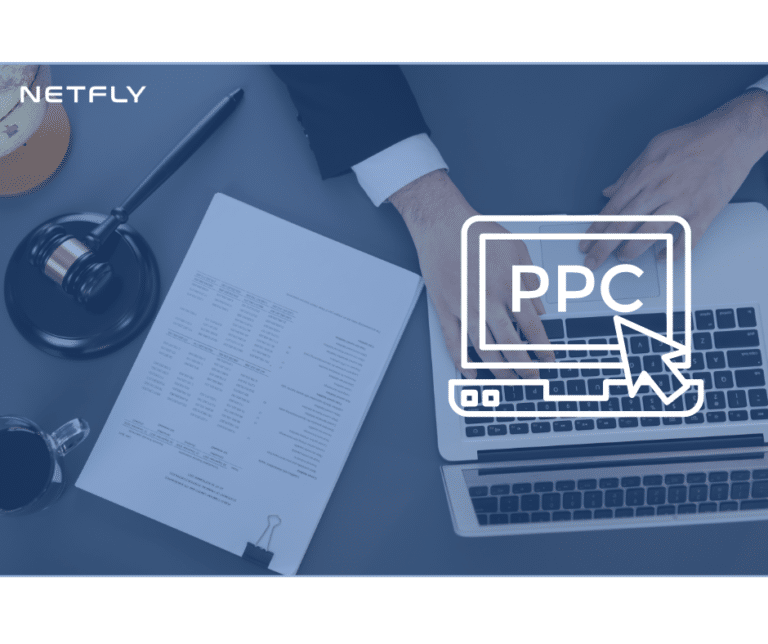Law firms aiming to boost their online presence need a strategic approach to digital marketing, starting with website optimization and effective SEO practices. By tailoring their content and keywords to target audiences, law firms can greatly enhance search engine rankings. Additionally, engaging in content marketing, such as legal blogs, and maintaining a robust social media presence can establish credibility and attract potential clients. However, these are just the beginning. To truly excel in the digital landscape, law firms must also consider paid advertising, video content, and more. So, what other strategies can amplify their marketing efforts?
Key Takeaways
- Optimize your website for mobile devices to capture and retain a significant portion of web traffic.
- Use targeted SEO strategies, including keyword research and backlink building, to improve search rankings.
- Create and regularly update legal blogs and white papers to establish authority and engage your audience.
- Implement PPC advertising with precise audience targeting for immediate visibility on search engines.
- Leverage video content, such as client interviews and explainer videos, to build trust and enhance SEO.
Optimize Your Website
A well-optimized website is critical for law firms to attract and convert potential clients efficiently. In today’s digital age, potential clients often judge a firm’s credibility based on its online presence. Ensuring that the website excels in mobile optimization and website security can greatly enhance user experience and trust.
Mobile optimization isn’t just a trend; it’s a necessity. With over 50% of global web traffic coming from mobile devices, a law firm’s website must be fully functional and visually appealing on smartphones and tablets. Google’s mobile-first indexing means that a site’s mobile version is prioritized in search rankings. A responsive design, fast load times, and easy navigation are essential. According to a study by Google, 53% of mobile users abandon sites that take longer than three seconds to load. Therefore, focusing on mobile optimization can directly improve both user retention and search engine visibility.
Website security is another cornerstone of a well-optimized site. Clients entrust law firms with sensitive information, making robust security measures non-negotiable. Implementing HTTPS encryption is a fundamental step; it not only protects data but also boosts search engine rankings, as Google considers HTTPS a ranking signal. Additionally, regular security audits and updates to software and plugins can prevent vulnerabilities. A study by Cybersecurity Ventures predicts that cybercrime will cost the world $6 trillion annually by 2021. Hence, a secure website not only protects client data but also safeguards the firm’s reputation.
Leverage SEO Strategies
Why should law firms prioritize leveraging SEO strategies to enhance their digital presence and attract more clients? The answer lies in the compelling data: 93% of online experiences begin with a search engine, and 75% of users never scroll past the first page of search results. For law firms, this means that achieving a high search engine ranking isn’t just beneficial—it’s essential.
Effective SEO strategies start with thorough keyword research. Identifying the right keywords allows law firms to understand what potential clients are searching for. This insight helps in tailoring website content to match these search queries, thereby improving visibility. For instance, a family law firm might find that keywords like ‘divorce lawyer’ or ‘child custody attorney’ have high search volumes and low competition. By strategically integrating these keywords into their website content, meta descriptions, and title tags, they can significantly enhance their search engine ranking.
Another important aspect of SEO is backlink building. Backlinks, or inbound links from other reputable websites, signal to search engines that a website is authoritative and trustworthy. Law firms can build backlinks by engaging in guest blogging, securing mentions in legal directories, and collaborating with other respected legal professionals. According to a study by Moz, websites with a high number of backlinks tend to have higher organic search rankings.
Utilize Content Marketing
Content marketing is essential for law firms to establish authority, engage potential clients, and improve search engine rankings. By creating high-quality, informative content, law firms can demonstrate their expertise and build trust with their audience. Legal blogs and white papers are two powerful tools in a firm’s content marketing arsenal.
Legal blogs provide a platform for law firms to explore deeply into complex legal issues, offering detailed analysis and authoritative opinions. These detailed documents are particularly effective for attracting corporate clients and other professionals seeking in-depth legal information. A study by the Content Marketing Institute found that 71% of B2B buyers used white papers to research purchase decisions, highlighting their value in the decision-making process.
To maximize the effectiveness of content marketing, law firms should focus on producing high-quality, relevant content that addresses the specific needs and interests of their target audience. This involves conducting keyword research to identify topics of interest and ensuring that the content is well-researched and professionally written. Regularly updating the blog and publishing new white papers can keep the audience engaged and encourage repeat visits to the firm’s website. In conclusion, leveraging legal blogs and white papers can greatly enhance a law firm’s digital marketing efforts, driving traffic, and generating leads.
Engage on Social Media
By actively participating on social media, law firms can amplify their reach, foster client relationships, and drive website traffic. With over 3.6 billion people using social media worldwide, platforms like LinkedIn, Facebook, and Twitter are invaluable for law firms looking to expand their digital footprint. Engaging on social media isn’t just about posting content; it’s about creating meaningful interactions that build trust and credibility.
One powerful tool in a law firm’s social media strategy is social listening. By monitoring conversations about relevant legal topics, firms can gain insights into client concerns and industry trends. This proactive approach allows them to tailor their content to address specific issues that potential clients are discussing. Data shows that 76% of people expect companies to understand their needs and expectations, making social listening an essential practice for client-centric marketing.
In addition to social listening, influencer partnerships can greatly enhance a law firm’s online presence. Collaborating with legal influencers who have established credibility and a substantial following can provide a broader reach. Studies suggest that influencer marketing delivers 11 times the ROI of traditional digital marketing methods. By partnering with influencers, law firms can tap into new audiences and enhance their reputation.
Furthermore, consistent engagement on social media platforms helps to humanize the firm. Responding promptly to comments and messages demonstrates a commitment to client service. Regularly sharing updates, legal tips, and success stories keeps the audience informed and engaged.
Invest in PPC Advertising
Leveraging social media engagement is just one part of the equation; investing in PPC advertising can greatly enhance a law firm’s online visibility and client acquisition. Pay-per-click (PPC) advertising, when executed correctly, provides immediate visibility on search engines like Google and Bing. It’s a highly effective strategy for law firms aiming to attract potential clients actively searching for legal services.
Data shows that businesses make an average of $2 in revenue for every $1 spent on Google Ads. This statistic alone highlights the immense potential of PPC advertising. Law firms can use ad platforms to create targeted ads that appear when specific keywords are searched. This ensures that their ads are seen by individuals who are already interested in legal services, increasing the likelihood of conversion.
Effective bid management is vital in PPC campaigns. Automated bid strategies offered by most ad platforms can help law firms optimize their ad spend. By setting maximum bid limits and targeting cost-effective keywords, law firms can guarantee their ads remain competitive without overspending. Additionally, continuous monitoring and adjusting bids based on performance data can greatly improve results.
Moreover, PPC campaigns allow for precise audience targeting. Law firms can narrow down their audience by location, demographics, and even the time of day. This level of specificity ensures that the advertising budget is spent efficiently, reaching only those most likely to require legal assistance.
Implement Email Campaigns
Email campaigns are an essential tool for law firms to nurture client relationships and drive engagement. With the right personalization techniques and automation tools, law firms can efficiently manage and enhance their outreach efforts. Personalized emails have been shown to generate six times higher transaction rates than generic ones. By leveraging data on client behavior and preferences, law firms can craft tailored messages that resonate with recipients, fostering a stronger connection and increasing the likelihood of engagement.
Automation tools simplify the process of managing email campaigns, allowing firms to schedule emails, segment audiences, and track performance metrics without manual intervention. These tools can automatically send welcome emails to new subscribers, follow-up messages to potential clients, or reminders about upcoming consultations. This level of automation guarantees that no opportunity is missed and that clients feel valued and informed.
To maximize the impact of email campaigns, law firms should focus on creating compelling content that addresses common legal concerns and provides valuable insights. Case studies, legal updates, and expert advice can position the firm as a trusted authority in its field. Including clear calls-to-action in emails, such as scheduling a consultation or downloading a legal guide, can also drive further engagement and conversions.
Use Video Marketing
Law firms can further amplify their digital presence and client engagement by incorporating video marketing into their strategy. Video content has been shown to increase user understanding of services by 74%, making it a powerful tool for law firms. By creating client interviews, attorneys can build trust and showcase real-life success stories, which can greatly influence potential clients’ decisions.
Explainer videos are another effective form of video marketing. They break down complex legal concepts into easily digestible information, making the firm’s expertise accessible to a broader audience. These videos not only educate but also establish the law firm as an authority in its field. Studies reveal that 53% of consumers engage with a brand after viewing an explainer video, highlighting the potential for increased client inquiries.
Moreover, video marketing can enhance a law firm’s website SEO. Search engines prioritize video content, making it more likely for the firm’s site to appear in top search results. Embedding client interviews and explainer videos on landing pages can reduce bounce rates and boost average session durations, both critical metrics for SEO performance.
Social media platforms also favor video content, giving law firms an edge in reaching a wider audience. Short, engaging clips can be shared across multiple channels, driving traffic back to the firm’s website. For example, a LinkedIn post featuring a client interview can generate substantial engagement, leading to more business inquiries.
Incorporating video marketing is not just a trend but a strategic move that can yield measurable results. By leveraging client interviews and explainer videos, law firms can enhance their online presence, build trust, and ultimately attract more clients.
Focus on Local SEO
Optimizing for local SEO can greatly enhance a law firm’s visibility in search results and attract more local clients. When law firms focus on local SEO, they make it easier for potential clients in their geographical area to find them. This targeted effort guarantees that the firm’s online presence aligns with the needs of their target audience, leading to increased traffic and higher conversion rates.
One effective strategy is incorporating geographic keywords into the firm’s website content. For instance, a law firm in Boston should use keywords like ‘Boston personal injury lawyer’ or ‘Boston family law attorney’ throughout their site. This not only boosts their search engine ranking but also makes it clear to prospective clients that the firm is local and accessible.
Another critical component is optimizing the firm’s Google My Business (GMB) profile. Law firms should make certain that all information on their GMB profile, including address, phone number, and office hours, is accurate and up-to-date. Regularly updating posts and responding to reviews can further enhance local search performance, as Google prioritizes active and well-maintained profiles.
Additionally, building local backlinks can markedly improve a law firm’s local SEO. Partnering with local businesses, sponsoring community events, or contributing articles to local publications can generate valuable backlinks. These links signal to search engines that the firm is a credible and relevant option within the local community.
Gather Client Testimonials
Collecting client testimonials can greatly enhance a law firm’s credibility and attract new clients by showcasing positive experiences and proven results. Client testimonials act as powerful social proof, reinforcing the firm’s reputation and reliability. According to a recent study, 92% of consumers read online reviews before making a decision, highlighting the importance of testimonials in the decision-making process.
To gather compelling testimonials, law firms should conduct client interviews, focusing on specific outcomes and satisfaction levels. Asking the right questions during these interviews can yield detailed and impactful testimonials. For example, questions like ‘How did our legal services help you achieve your goals?’ or ‘What aspects of our service did you find most beneficial?’ can elicit responses that highlight the firm’s strengths.
Once gathered, strategic testimonial placements on the firm’s website and social media channels are essential. Placing testimonials on the homepage, service pages, and dedicated testimonial sections can significantly boost the firm’s online presence. According to BrightLocal, 73% of consumers trust a business more after reading positive reviews, making proper placement essential.
Video testimonials, in particular, can be highly effective. They add a personal touch and allow potential clients to see and hear genuine client experiences. According to Wyzowl, 84% of people say they’ve been convinced to buy a product or service after watching a brand’s video. Incorporating video testimonials can be a game-changer for law firms.
Monitor Analytics and Metrics
Monitoring analytics and metrics is vital for law firms to measure the effectiveness of their digital marketing strategies and make data-driven decisions. By tracking performance, firms can identify which campaigns are driving traffic, generating leads, and converting clients. This insight is essential for optimizing marketing efforts and guaranteeing resources are allocated efficiently.
Using tools like Google Analytics, law firms can gain valuable insights into website traffic, user behavior, and conversion rates. For example, tracking metrics such as page views, bounce rates, and session duration helps firms understand how visitors interact with their site. If a particular page has a high bounce rate, it may indicate that the content is not engaging or relevant, prompting a need for revision.
Interpreting data accurately is another critical component. It’s not enough to simply collect data; firms must analyze it to uncover meaningful patterns and trends. For instance, by examining the sources of website traffic, a firm can determine which channels—such as organic search, paid ads, or social media—are most effective. This data interpretation allows for more informed decisions about where to focus marketing efforts.
Moreover, tracking performance over time enables law firms to measure the impact of specific marketing initiatives. By comparing metrics before and after a campaign, firms can assess its success and identify areas for improvement. Regularly reviewing analytics ensures that marketing strategies remain aligned with business goals.
Frequently Asked Questions
How Can Law Firms Stay Compliant With Digital Marketing Regulations?
Law firms must stay compliant by adhering to ethics policies, regularly reviewing privacy concerns, and implementing strict data protection measures. They should train staff on regulatory requirements and utilize technology to monitor and guarantee compliance consistently.
What Are the Best Tools for Managing Digital Marketing Campaigns for Law Firms?
For managing digital marketing campaigns, law firms should use tools with CRM integration and robust analytics platforms. These tools streamline client interactions and provide actionable data, making campaign management efficient and results-driven.
How Should Law Firms Allocate Their Digital Marketing Budget Effectively?
Law firms should allocate their digital marketing budget by prioritizing high-ROI marketing channels. They should analyze data to identify the most effective channels, ensuring budget allocation maximizes client acquisition and retention while minimizing costs.
What Are the Key Trends in Digital Marketing for the Legal Industry in 2023?
In 2023, law firms should focus on voice search optimization and video marketing. Data shows that 55% of users prefer voice search, and video content increases engagement by 80%, making these strategies essential for digital success.
How Can Law Firms Protect Their Online Reputation During a Digital Marketing Campaign?
Law firms can protect their online reputation by actively monitoring client reviews, addressing negative feedback swiftly, and leveraging social proof. This approach builds trust and demonstrates responsiveness, essential for maintaining a positive digital presence.
Conclusion
To sum up, law firms can greatly enhance their online presence by optimizing their website, leveraging SEO and local SEO strategies, and engaging in content marketing. Investing in PPC advertising, video marketing, and social media engagement, while gathering client testimonials, enhances credibility and client acquisition. Monitoring analytics guarantees data-driven decisions, maximizing conversions and growth. By implementing these digital marketing tips, law firms can effectively attract and retain clients in an increasingly competitive market.










